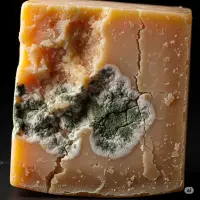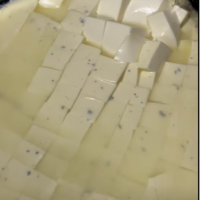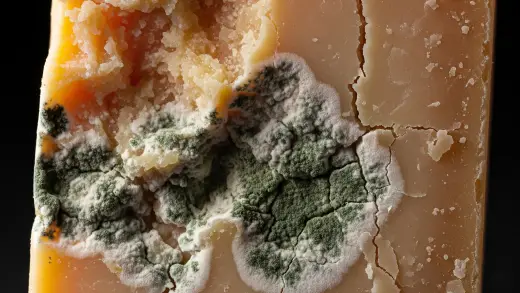Kraft Parmesan cheese comes from the United States, specifically Austin, Texas. This popular cheese product is made with high-quality ingredients sourced from reputable suppliers.
Kraft Parmesan cheese is a beloved staple in many households, known for its rich and savory flavor. Produced in Austin, Texas, the cheese is made using traditional methods and high-quality ingredients. The company ensures that the cheese culture, enzymes, and other components are sourced from reputable suppliers to maintain the product’s high standards.
With its origins in the United States, Kraft Parmesan cheese continues to be a favorite choice for enhancing the flavor of various dishes.

Credit: www.amazon.com
The Roots Of Kraft Parmesan Cheese
Kraft Parmesan Cheese has its roots in the United States, specifically in Austin, Texas. The cheese is made from pasteurized part-skim milk, cheese culture, salt, and enzymes, and is commonly produced at the Kraft plant in Wausau, Wisconsin. While Parmesan can be made anywhere, the name Parmigiano Reggiano is protected and regulated, ensuring strict production guidelines are adhered to in a specific area of northern Italy.
The Journey From Milk To Cheese
Kraft Parmesan Cheese is a beloved staple in many households, adding a burst of flavor to various dishes. But have you ever wondered where it comes from? Let’s take a closer look at the journey of Kraft Parmesan Cheese from milk to your table.
The production process starts with pasteurized part-skim milk, which serves as the base for the cheese. This milk undergoes a meticulous transformation using cheese culture, salt, and enzymes. These ingredients work together to create the distinctive taste and texture that we associate with Parmesan cheese.
After the milk is cultured and seasoned, it is left to ripen for a specific period, allowing the flavors to develop further. This aging process adds depth and complexity to the cheese, enhancing its overall quality.
Key Ingredients Revealed
When it comes to Kraft Parmesan Cheese, two key ingredients play a significant role in maintaining its taste and freshness: cellulose powder and potassium sorbate.
Cellulose powder, derived from plant fibers, is added to Kraft Parmesan Cheese to prevent clumping and ensure a consistent texture. It also acts as an anti-caking agent, allowing the cheese to sprinkle easily onto your favorite dishes. Rest assured, cellulose powder is safe for consumption and provides health benefits due to its fiber content.
Potassium sorbate is another important ingredient used in Kraft Parmesan Cheese. It serves as a preservative, protecting the flavor and freshness of the cheese. This ingredient ensures that you can enjoy the rich taste of Kraft Parmesan Cheese for an extended period.
By combining the traditional art of cheese-making with modern techniques, Kraft Parmesan Cheese delivers a delightful culinary experience. From the careful selection of milk to the addition of key ingredients, each step is meticulously executed to create a product that satisfies your taste buds.
So, the next time you sprinkle Kraft Parmesan Cheese onto your pasta or salad, you can appreciate the journey it took to reach your plate. This versatile cheese adds a burst of flavor and enhances your favorite recipes, all thanks to the roots of Kraft Parmesan Cheese.
:max_bytes(150000):strip_icc()/ar-kraft-parmesan-cheese-kraft-4x3-c59082cc061b417a8c80cc455f62d259.jpg)
Credit: www.allrecipes.com
Crafting The Flavor
Kraft Parmesan cheese is renowned for its distinctive flavor, which is carefully crafted through the use of specific ingredients and processes. Two key components that contribute to the flavor and quality of Kraft Parmesan cheese are cellulose powder and potassium sorbate.
The Role Of Cellulose Powder
Cellulose powder, a common ingredient in grated Parmesan cheese, is derived from plant sources such as wood pulp and is utilized as an anti-caking agent. It serves to prevent the cheese from clumping together, ensuring a smooth and consistent texture. Additionally, cellulose powder aids in preserving the cheese’s freshness and enhances its shelf life, providing consumers with a high-quality product that maintains its flavor over time.
Potassium Sorbate Explained
Potassium sorbate is a food preservative used in Kraft Parmesan cheese to protect its flavor and extend its longevity. This compound inhibits the growth of mold and yeast, safeguarding the cheese from spoilage and maintaining its delicious taste. Through the inclusion of potassium sorbate, Kraft ensures that their Parmesan cheese maintains its superior flavor and quality, delivering a product that consistently meets consumer expectations.
Parmesan Beyond Borders
Parmesan Beyond Borders is a blog that explores the origin of Kraft Parmesan Cheese. Discover the journey of this popular cheese from Austin, Texas, United States, to your plate. Learn about the ingredients and production process that make Kraft Parmesan Cheese a household favorite.
When it comes to Parmesan cheese, the origins of this beloved dairy product go beyond the borders of its Italian heritage. While Italy is renowned for its traditional Parmigiano Reggiano, the production of Parmesan cheese has expanded globally, including in the United States.
Italian Origins Vs. Global Production
In Italy, the name Parmigiano Reggiano is protected and regulated, ensuring that only cheeses made in a specific area of northern Italy, adhering to strict production guidelines, can be called Parmigiano Reggiano.
However, Parmesan cheese is not limited to Italy alone. The global production of Parmesan has seen an increase, with countries like the United States also contributing to its production.
The Wisconsin Connection
One notable contributor to the production of Parmesan cheese is the state of Wisconsin in the United States. The Kraft plant in Wausau, Wisconsin, plays a significant role in producing Parmesan cheese.
Located in the heart of America’s dairyland, the Kraft plant in Wisconsin ensures the production of authentic Parmesan cheese. The green bottle of Kraft grated Parmesan is a popular choice among consumers, known for its delicious flavor.
While the traditional Parmigiano Reggiano holds its own unique charm, Kraft Parmesan cheese provides a convenient and tasty option for many households.
So, whether you’re enjoying a classic Italian dish or sprinkling some Parmesan on your favorite American recipe, the world of Parmesan cheese extends beyond its Italian origins, embracing global production and satisfying taste buds everywhere.
The Vegetarian Dilemma
When it comes to choosing vegetarian-friendly products, it’s important to be aware of hidden animal-derived ingredients. In the case of Kraft Parmesan Cheese, the vegetarian dilemma lies in understanding the enzymes used during the cheese-making process. Let’s dive deeper into two key enzymes: microbial rennet and lipase.
Understanding Microbial Rennet
Microbial rennet is an enzyme derived from microorganisms and is commonly used in the production of cheese. Unlike traditional rennet, which is derived from the stomach lining of young calves, microbial rennet is a vegetarian-friendly alternative. It helps coagulate the milk and separate it into curds and whey, an essential step in cheese-making.
Lipase: The Hidden Animal-derived Enzyme
While microbial rennet is generally considered suitable for vegetarians, lipase can pose a dilemma for those following a vegetarian diet. Lipase is an enzyme responsible for breaking down fats and is sometimes added to enhance the flavor of Parmesan cheese. However, lipase is often derived from animal sources.
When purchasing Kraft Parmesan Cheese, it’s crucial to check the label for the presence of lipase. If lipase is listed as an ingredient, it means the cheese may not be suitable for vegetarians. To ensure vegetarian-friendly options, look for Kraft Parmesan Cheese products that specifically state the use of microbial rennet and the absence of lipase.
By being aware of the enzymes used in the cheese-making process, vegetarians can make informed choices and enjoy their favorite Parmesan cheese guilt-free.
Cultural And Culinary Impact
Kraft Parmesan cheese is a product of the United States, primarily manufactured at the Kraft plant in Wausau, Wisconsin. While Parmesan cheese traditionally originates from Italy, the Kraft version has made a significant cultural and culinary impact in the US, often used as a convenient and flavorful addition to various dishes.
Kraft’s Place In American Kitchens
Kraft Parmesan cheese has been a staple ingredient in American kitchens since its introduction in the 1940s. The convenience and affordability of this grated cheese made it a popular choice for home cooks across the country. Today, Kraft Parmesan cheese remains a household name and a go-to ingredient for adding a cheesy flavor to a variety of dishes, from pasta to salads and beyond.Comparison With Traditional Parmigiano Reggiano
While Kraft Parmesan cheese may share a name with traditional Parmigiano Reggiano cheese from Italy, the two products are vastly different. Parmigiano Reggiano is a protected designation of origin cheese, meaning it can only be produced in certain regions of Italy and must adhere to strict production guidelines. In contrast, Kraft Parmesan cheese is a processed cheese made from pasteurized milk, cheese culture, salt, enzymes, and cellulose powder. Despite these differences, Kraft Parmesan cheese still has a cultural and culinary impact. Its convenience and affordability make it accessible to a wider range of consumers, and its unique flavor and texture can enhance a variety of dishes. Whether you’re a fan of traditional Parmigiano Reggiano or prefer the convenience of Kraft Parmesan cheese, there’s no denying the impact that these cheeses have had on the culinary world.Health And Nutrition
Kraft Parmesan cheese is made from pasteurized part-skim milk, cheese culture, salt, enzymes, cellulose powder, and potassium sorbate to protect flavor. While Parmigiano Reggiano cheese is protected and regulated in Italy, Parmesan can be made anywhere. Kraft’s Parmesan cheese is made at their plant in Wausau, Wisconsin, among other locations.
However, many Parmesan cheeses in America are imitators produced in the US or South America.
Benefits Of Cellulose Fiber
Kraft Parmesan Cheese has a unique ingredient, cellulose fiber, which is a plant-based ingredient that helps to prevent clumping. This ingredient is also beneficial to our health because it is a type of dietary fiber that aids in digestion. Cellulose fiber is commonly found in fruits, vegetables, and whole grains, and it helps to promote regular bowel movements and reduce the risk of constipation. It also helps to keep us feeling full for a longer period, reducing cravings and aiding in weight management.Navigating Added Preservatives
When it comes to choosing food products, it’s essential to understand the ingredients and preservatives used. Kraft Parmesan Cheese includes an added preservative, potassium sorbate, to protect its flavor. This preservative is safe for consumption and is commonly used in many food products. However, some people may have an allergic reaction to it, so it is essential to read the label and check for any potential allergens. Moreover, it’s crucial to note that not all Parmesan cheese products are created equal. Some imitators are produced in different regions worldwide, and they may not adhere to the same strict production guidelines as Parmigiano Reggiano, which is a type of Parmesan cheese that is only produced in a specific region in Northern Italy. Hence, it’s essential to read the label and understand the source of the Parmesan cheese product you’re buying. In conclusion, Kraft Parmesan Cheese is a delicious and convenient ingredient that can add flavor to many dishes. It’s also a source of cellulose fiber, which is beneficial for our health. However, when choosing any food product, it’s essential to read the label, understand the ingredients used, and be aware of any potential allergens or imitators.Controversies Unpacked
Kraft Parmesan Cheese has been a staple in many households for years, known for its distinct flavor and versatility in various dishes. However, this beloved cheese has not been without its fair share of controversies. In this section, we will delve into some of the controversies surrounding Kraft Parmesan Cheese, including the wood pulp misconception and legal battles in Europe.
The Wood Pulp Misconception
One of the most widely spread controversies surrounding Kraft Parmesan Cheese is the misconception that it contains wood pulp or sawdust. This misconception originated from a study conducted by the Food and Drug Administration (FDA) in 2016, which found that some grated Parmesan cheese products in the market contained cellulose, a plant-based additive commonly derived from wood pulp. However, it is important to note that cellulose is not inherently harmful and is widely used in the food industry as a bulking agent or to improve texture.
Cellulose, when used in grated Parmesan cheese, serves the purpose of preventing clumping and ensuring the cheese maintains its quality for a longer period. The FDA allows the use of cellulose in grated Parmesan cheese products as long as it does not exceed a certain percentage. Therefore, the presence of cellulose in Kraft Parmesan Cheese is not a cause for concern and does not indicate the presence of harmful substances.
Legal Battles In Europe
In Europe, the term “Parmesan” is protected and regulated under the name “Parmigiano Reggiano.” This means that only cheeses made in a specific area of northern Italy, following strict production guidelines, can be labeled as Parmigiano Reggiano. However, there have been legal battles surrounding the use of the term “Parmesan” by American and South American producers.
Many imitation Parmesan cheeses produced outside of Italy have been marketed as “Parmesan,” causing confusion among consumers. These imitators often come with names such as “Parmesan” or “Parmigiana,” leading consumers to believe they are purchasing genuine Parmigiano Reggiano. To protect the integrity of Parmigiano Reggiano and prevent misleading labeling, legal battles have been fought to enforce the proper use of the term “Parmesan.”
It is worth noting that Kraft Parmesan Cheese is not labeled as “Parmigiano Reggiano” but as “Parmesan.” While it may not meet the strict guidelines set for Parmigiano Reggiano, it still offers a flavorful and convenient option for consumers.
In conclusion, the controversies surrounding Kraft Parmesan Cheese, such as the wood pulp misconception and legal battles in Europe, are important to address. By understanding the facts behind these controversies, consumers can make informed choices and enjoy the unique flavor of Kraft Parmesan Cheese in their favorite dishes.
Choosing Your Cheese
Kraft Parmesan cheese is made in the United States, not in Italy. It is produced at the Kraft plant in Wausau, Wisconsin, and is a popular choice for many consumers due to its taste and convenience. The cheese is made from pasteurized part-skim milk, cheese culture, salt, enzymes, cellulose powder, and potassium sorbate to protect flavor.
Reading Labels Carefully
When it comes to choosing your Parmesan cheese, it’s important to read the labels carefully. This will ensure that you are getting the quality and authenticity you desire. Pay close attention to the ingredients listed, as well as any additional information provided. Look for key indicators such as “Parmesan Reggiano” or “Parmigiano Reggiano,” which are protected and regulated names for authentic Parmesan cheese. Avoid products that simply say “Parmesan” without any further specifications, as these may not meet the same standards.Kraft Vs. Authentic Parmesan Taste Test
To truly understand the difference between Kraft Parmesan cheese and authentic Parmesan cheese, it’s worth conducting a taste test. While Kraft Parmesan cheese may be more readily available and convenient, it may not offer the same depth of flavor as authentic Parmesan. Consider purchasing a small block of authentic Parmesan cheese and comparing it to the Kraft version. Take note of the texture, aroma, and taste of each. This will help you determine which option best suits your palate and culinary needs.Kraft Parmesan Cheese Production
Kraft Parmesan cheese is produced by Kraft Heinz, a well-known American food company. The exact location of production may vary, but Kraft has manufacturing facilities across the United States. For example, some Kraft Parmesan cheese products are made at the Kraft plant in Wausau, Wisconsin. However, it’s important to note that Kraft Parmesan cheese is not the same as authentic Parmesan cheese produced in Italy. The production methods, ingredients, and quality standards may differ between the two.Choosing The Right Parmesan Cheese For You
In conclusion, when choosing your Parmesan cheese, it’s important to consider your preferences and culinary requirements. Reading labels carefully will help you identify authentic Parmesan cheese options. Conducting a taste test between Kraft Parmesan cheese and authentic Parmesan cheese can further assist you in making an informed decision. Keep in mind that Kraft Parmesan cheese is a convenient and widely available option, but it may not offer the same depth of flavor as authentic Parmesan cheese. Ultimately, choose the Parmesan cheese that best suits your taste and enhances your favorite dishes.
Credit: discover.texasrealfood.com
Frequently Asked Questions
What Is Kraft Parmesan Cheese Made From?
Kraft parmesan cheese is made from pasteurized part-skim milk, cheese culture, salt, enzymes, cellulose powder, and potassium sorbate.
Where Does The Us Get Parmesan Cheese From?
Kraft Parmesan cheese in the US is made from pasteurized part-skim milk, cheese culture, salt, enzymes, cellulose powder, and potassium sorbate to protect flavor. While Parmigiano Reggiano, the protected and regulated name for Parmesan cheese, is only made in a specific area of northern Italy that adheres to strict production guidelines, many imitators are produced in the US and South America.
The Kraft plant in Wausau, Wisconsin is a major producer of Parmesan cheese in the US.
Does Kraft Grated Parmesan Cheese Have Animal Rennet?
Yes, Kraft grated Parmesan cheese uses microbial rennet but may contain animal-derived lipase. Check the label for “lipase” to ensure it’s suitable for vegetarians.
Is All Parmesan Cheese Made In Italy?
Parmesan cheese can be made anywhere, but the name “Parmigiano Reggiano” is protected and regulated. Only cheeses made in a specific area of northern Italy, following strict production guidelines, can be called Parmigiano Reggiano. So not all Parmesan cheese is made in Italy, but only cheeses meeting these criteria can carry the Parmigiano Reggiano name.
What Is Kraft Parmesan Cheese Made From?
Kraft Parmesan cheese is made from pasteurized part-skim milk, cheese culture, salt, enzymes, cellulose powder, and potassium sorbate.
Conclusion
Kraft Parmesan cheese is made from pasteurized part-skim milk, cheese culture, salt, enzymes, cellulose powder, and potassium sorbate to protect flavor. While it is not exclusively made in Italy, only cheeses made in a specific area of northern Italy that adhere to a strict set of production guidelines may be called Parmigiano Reggiano.
It is important to check the label for “lipase” to ensure that the cheese is suitable for vegetarians. So, enjoy your Kraft Parmesan cheese knowing where it comes from and what it contains.













